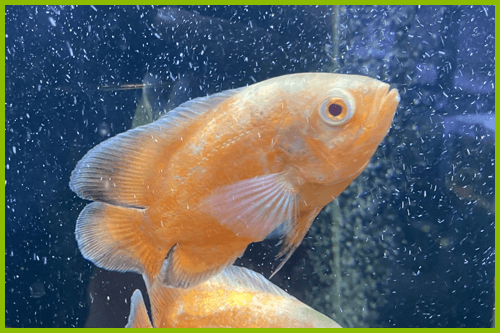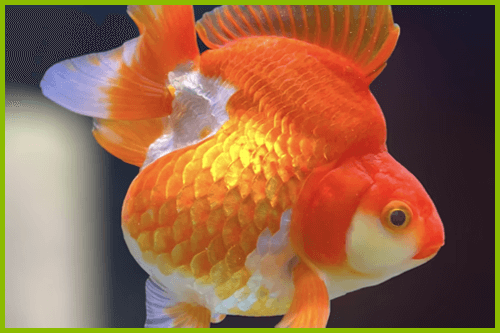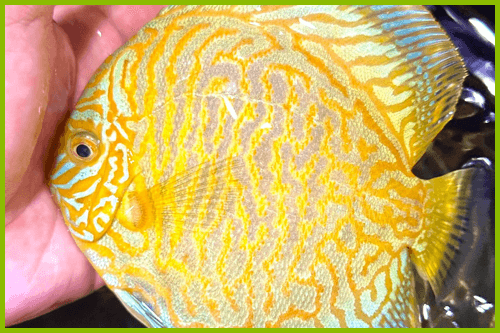Discus Fish Diseases and Treatment: How to Tell If Your Discus is Sick
Vincent will explain the signs to look out for when your Discus is sick.
Keeping Discus fish healthy can be both rewarding and challenging. Known as the “King of the Aquarium,” Discus are sensitive fish that quickly show signs of something wrong. But spotting the difference between a temporary stress reaction and a real disease can be tricky, even for experienced aquarists.
In this guide, we’ll walk through the most common Discus fish diseases, their early warning signs, and what those symptoms might mean—from discus turning black, white poop, or clamped fins, to more serious issues like bacterial infections or the feared Discus plague. More importantly, you’ll also learn the right treatments and prevention tips to help your Discus recover and keep your tank thriving.
Quick Signs of a Sick Discus
Discus are highly expressive fish, when something’s wrong, they often show it quickly. The key is knowing which changes signal stress and which ones point to real illness.
Here are the most common signs to watch for:
- Discus Turning Dark or Black
A healthy Discus should have vibrant colours. If it’s turning black or showing dark patches, this often signals stress, poor water quality, or underlying disease. - Clamped Fins
Instead of spreading fins gracefully, sick Discus may keep their fins tightly pressed to their body, a tell-tale sign of discomfort. - White Poop
Normally, Discus faeces are dark and solid. White, stringy poop can indicate internal parasites or digestive issues. - Loss of Appetite
If your Discus suddenly refuses food, especially for more than a day or two, it’s usually a red flag. - Hiding or Isolation
Discus are social fish. When one stays apart, hides, or avoids swimming with the group, it’s often unwell. - Rapid Breathing or Gasping
This can be a sign of gill parasites, poor oxygen levels, or bacterial infection. - White Mucus on the Body
A slimy, cloudy film or white patches on the skin often suggest external parasites or bacterial infection.
💡 Key takeaway: Small changes in behaviour or appearance matter. Acting early—before symptoms get severe—can make all the difference in treatment success.
Understanding Common Discus Diseases
Once you notice early warning signs, the next step is understanding what could be causing them. Discus fish are sensitive creatures, and even slight changes in water quality or tank dynamics can make them vulnerable. The most common discus diseases fall into a few main categories:
1. Parasites
- Internal Parasites often show up as white, stringy poop or a Discus losing weight despite eating.
- External Parasites, like flukes or protozoa, can cause rapid breathing, rubbing against objects, or white mucus patches on the body.
- These are among the most frequent issues fishkeepers face, especially in community tanks.
2. Bacterial Infections
- Bacteria thrive in poor water conditions or after stress (like transport or aggression).
- Symptoms can include clamped fins, cloudy eyes, ulcers, or skin lesions.
- Left untreated, bacterial infections can spread fast through the tank.
3. Fungal Infections
- Fuzzy white growths or cotton-like spots often point to fungus.
- While less common than parasites or bacteria, fungi usually attack weakened Discus that are already stressed or injured.
4. Discus Plague
- This is the condition most Discus keepers dread.
- Fish suddenly turn very dark (almost black), stop eating, produce excess slime, and isolate themselves.
- While not always fatal, Discus plague requires immediate and consistent treatment to prevent heavy losses.
Understanding which category your Discus’ symptoms fall into helps you act faster and with the right treatment. Many beginners assume every issue is “just stress,” but in reality, knowing whether you’re dealing with parasites, bacteria, or plague makes a huge difference.
Key Symptoms and What They Mean
Every Discus keeper eventually faces the question: “Is my fish just stressed, or is it actually sick?” Recognising the difference is crucial because early action can save your whole tank. Here are the most common symptoms and what they often point to:
1. Why Is My Discus Turning Black?
When a Discus fish starts turning black or very dark, it’s usually a stress response or a sign of disease.
- Possible causes: poor water quality, parasites, bacterial infections, or even Discus plague.
- If only the fins turn black, it could signal early infection or fin damage.
2. Discus White Poop and Digestive Issues
One of the most evident warning signs of internal parasites is white, stringy feces.
- Healthy Discus should pass brownish, solid waste.
- If you consistently see white poop, it’s time to consider deworming with a proven Discus dewormer or internal parasite treatment.
Read our full article on How to Deworm Discus Fish Effectively in 10 Days or Less
3. Clamped Fins
When your Discus keeps its fins tightly folded against its body, it signifies discomfort.
- Common triggers: bacterial infections, parasites, or water stress (low oxygen, fluctuating pH).
- Clamped fins almost always mean the fish is unwell, even if no other symptoms have been shown yet.
4. White Mucus on the Body
If your Discus is producing excess slime coat that looks like white mucus patches, it’s a red flag.
- Often linked to external parasites (like gill flukes) or Discus plague.
- Left untreated, this symptom worsens quickly and spreads across the tank.
5. Loss of Appetite & Weight
A healthy Discus is always eager to eat. When a fish ignores food or loses weight while still eating, it’s often battling internal parasites or bacterial infection.
💡 Tips: Always look for a combination of symptoms instead of just one. For example, darkening colour, white poop, and no appetite are strong signs of internal parasites rather than just stress.
Discus Fish Diseases and Treatment Options
Once you can spot the symptoms, the next step is understanding the common diseases that affect Discus and how to treat them. Because Discus are sensitive, every treatment should be done with care, proper dosage, and close observation.
1. Discus Parasites
- Internal Parasites
Often revealed by white poop, loss of appetite, and weight loss.- Treatment: Use a reliable Discus dewormer such as levamisole for fish, metronidazole, or praziquantel.
- Supportive care: Keep water pristine and add vitamins to boost recovery.
- External Parasites
Seen as white mucus, gill irritation, flashing, or clamped fins.- Treatment: Formalin baths, salt dips, or targeted fish dewormer medicines.
2. Discus Bacterial Infections
- Signs: cloudy eyes, ulcers, fin rot, or heavy breathing.
- Treatment: Broad-spectrum antibacterial discus medicine (often found at aquarium stores) or specific antibiotics prescribed by a vet.
- Extra care: Increase aeration and carry out frequent water changes.
3. Discus Plague
One of the most feared conditions among keepers.
- Symptoms: rapid colour darkening, heavy slime coat, rapid breathing, clamped fins, refusal to eat.
- Treatment: There’s no “instant cure,” but supportive care helps:
- Keep water exceptionally clean.
- Add salt (aquarium-safe dosage).
- Isolate infected fish to prevent spread.
- Many aquarists use formalin + metronidazole combinations as supportive treatment.
4. Discus Stress-Related Illness
Sometimes what looks like a disease is actually stress caused by a poor environment.
- Triggers: sudden water parameter changes, overcrowding, incompatible tank mates.
- Solution: Improve tank conditions—stable temperature (28–30°C), soft acidic water, peaceful tank mates, and consistent routine.
💡 Key takeaway: Accurate diagnosis matters. Treating parasites with antibiotics or plague with dewormer wastes time and weakens the fish. Always match symptoms with the right discus treatment for the best results.
Read our article about How to Set Up an Affordable Hospital Tank at home.
Prevention: Keeping Your Discus Healthy Long-Term
The best way to keep your Discus thriving is not just treating illnesses when they appear, but building intense prevention routines. Discus may have a reputation for being delicate, but with the right habits, you can minimise the risk of discus diseases before they take hold.
- Prioritise Water Quality
- Clean, stable water is the number one defence.
- Maintain temperature around 28–30°C, pH slightly acidic, and low ammonia/nitrite.
- Perform regular water changes (20–30% several times per week).
- Quarantine New Fish
- Never introduce new tank mates directly into your Discus aquarium.
- Keep new arrivals in a separate quarantine tank for 2–4 weeks.
- Before mixing, observe signs of discus parasites, bacterial infection, or discus plague.
- Feed High-Quality Diets
- Avoid overfeeding, which causes water pollution and can lead to white poop in Discus (a sign of internal parasites).
- Rotate between pellets, frozen foods, and live foods (only from trusted sources).
- Supplements like vitamins and garlic extract can boost immunity naturally.
- Avoid Stress Factors
- Choose compatible tank mates for Discus, which are gentle and slow-moving species.
- Keep the tank calm: dim lighting, hiding spots, stable parameters.
- Reduce sudden changes in water or environment.
- Regular Observation
- Daily check: Are they eating well? Are fins clamped? Is any blackening of Discus fins visible?
- Early detection means faster, safer treatment with milder medicine, often preventing escalation.
Think of prevention as your first line of defence. A healthy environment, good food, and stress-free living conditions are more powerful than any medicine.
Read our full article on Best Discus Fish Tank Mates for a Peaceful Community Tank
Conclusion
Caring for Discus means more than enjoying their stunning colours, it requires attention to detail and consistency. Learning to recognise the early signs of a sick Discus, understanding the most common discus diseases, and having a plan for both treatment and prevention ensures your aquarium stays peaceful and thriving.
At OZ Discus, we believe prevention, knowledge, and passion are the keys to success. Whether you’re searching for premium Discus fish, trusted discus medicine, or expert care tips, we’re here to help you every step of the way.
Looking for More Expert Tips? Or the Discus Collection in Australia?
Explore more fish care articles, ask us questions, or browse our collection.
👉 Explore Fish Care Articles
👉 Shop High-quality Ornamental Fish
Disclaimer: This is a guide only. OZ Discus is not liable for any losses and holds no responsibility in the event of the death of the fish. Users of this guide are to use the information at their own discretion and accept all risks resulting from the use of this guide.
Shop OZ Discus
Visit our Live Fish Explorer and discover our premium Discus fish for sale.
We import our fish from the best farms and breeders around the world to ensure that you have the highest quality Discus for your fishkeeping journey.










